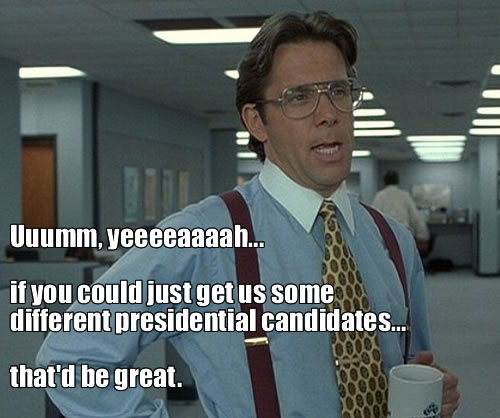In response to a Ross Douthat column both Alex Knapp and Steven Taylor are skeptical that the 2010 midterms will be a “repeat” of the 1994 GOP takeover of the House. While I agree that the fundamentals are somewhat less rosy for the Republicans this time around, there are a few reasons to expect a significant Republican rebound that will endanger the practical center-left majority in Congress:
-
Even if the economy recovers significantly by November 2010, it is unlikely that most voters will “feel” the recovery underway for months after the low point. The nature of retrospective voting is to look over a 12-to-18-month period, which means that either the improvement will have to be drastic or be well underway already. Both of these scenarios seem unlikely at best.
-
Any Democratic achievements during this Congress are unlikely to have a practical impact on voters by November 2010. In the case of health care reform that might be to the benefit of the Democrats, as they can take credit for action without the likely transition costs being apparent to voters by then. However, aspects of the “stimulus” that affect voters beyond the Democratic base (e.g. organized labor in the construction industry) are going to be largely invisible—few important stimulus projects, even the “shovel ready” ones, will be getting a ribbon-cutting between now and then. One achievement, the payroll tax reduction stimulus, was virtually invisible to most workers, and will bite a lot of retirees in the butt in April 2010 when the IRS comes to collect the taxes that weren’t withheld at the time, something unlikely to endear the Democrats or Obama to seniors already upset over the potential for Medicare spending cuts.
-
While the Republicans need 40 House seats to recapture a majority, recapturing even half of that could produce a working “winning coalition” with Blue Dogs on fiscal issues that will endanger any White House plans that can’t pass in the next year (which, at this point, is probably most of them). The Democrats’ filibuster-proof Senate supermajority is exceedingly unlikely to outlast the midterms, even considering that a Republican takeover is unlikely too.
-
Finally, as a practical concern, the Republicans are also likely to do well in major states’ legislative races that coincide with the presidential midterms, putting them in the driver’s seat for the 2010–12 redistricting battles in their states that will affect the Congresses Obama will have to work with beyond 2012 (assuming he seeks and wins reelection).
Coupled with likely GOP pickups in California due to the new “nonpartisan” redistricting process there,Republicans should be well positioned as a result of the 2010 elections to gain more seats in 2012 (due to reapportionment) and 2014 (due to traditional midterm loss).
The bottom line: although I agree with Alex and Steven that a Republican takeover is not really in the cards, I suspect the practical impact—chastening a Democratic president into matching his bipartisan rhetoric with some truly bipartisan proposals—of the midterms will be much the same, minus the impeachment silliness that typified the later Clinton-GOP House years.
Update: A commenter clarifies that the California redistricting commission only applies to the state legislature, not congressional redistricting.
![Welcome to Signifying Nothing [Signifying Nothing]](/local/memlogo-1.png)

